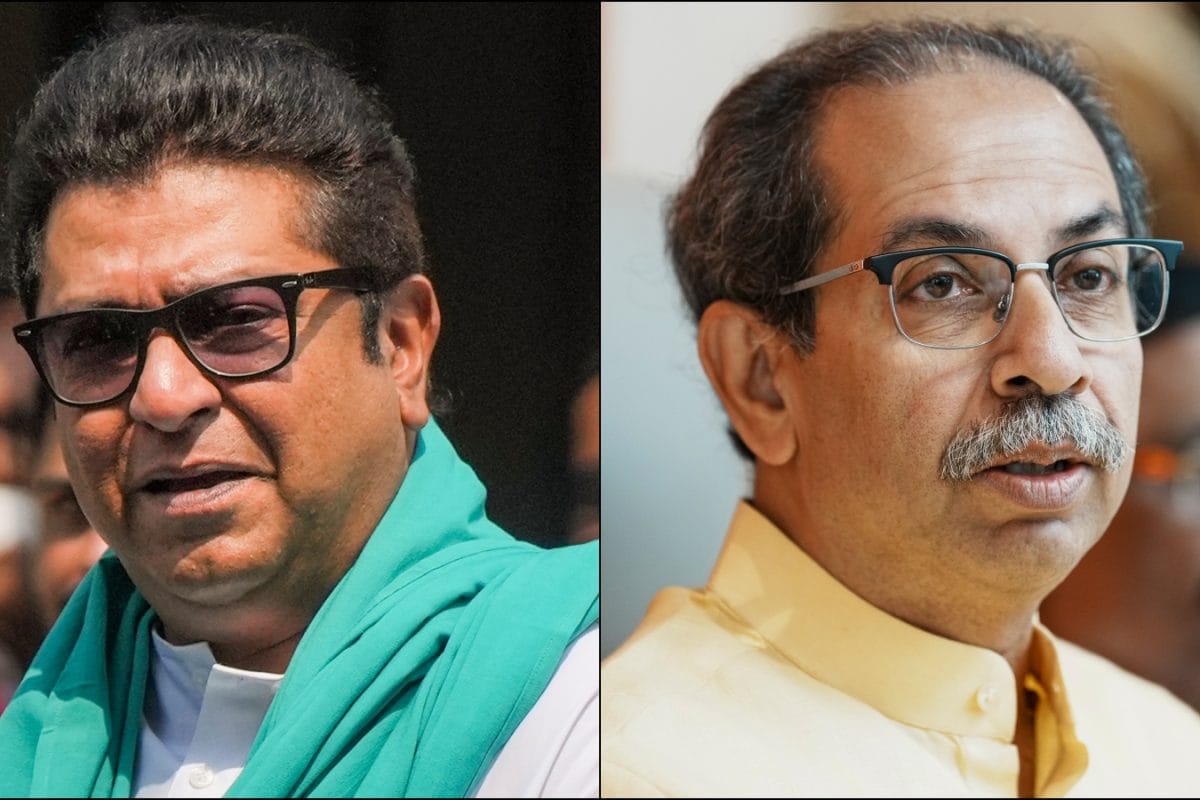

As Maharashtra braces for upcoming local body elections, the political atmosphere is heating up, marked by intriguing poster campaigns from the state's prominent parties. The Maharashtra Navnirman Sena (MNS), led by Raj Thackeray, and the Shiv Sena (UBT), headed by his cousin Uddhav Thackeray, have both strategically deployed posters across Mumbai, sparking speculation and debate about potential alliances and shifts in the state's political landscape.
The MNS has adopted a confrontational stance regarding the issue of language, specifically targeting the perceived imposition of Hindi. Their posters highlight the question of governmental priorities, pointedly asking why the government is focusing on what they see as imposing Hindi on Marathi people, rather than prioritizing the promotion of Marathi among outsiders residing in the state. This messaging aligns with Raj Thackeray's advocacy for a two-language policy in Maharashtra, as opposed to the existing three-language formula. In addition to the posters, MNS workers have reportedly been engaging with school principals throughout Maharashtra, voicing their opposition to the teaching of Hindi and staging symbolic protests, including the burning of Hindi textbooks.
Meanwhile, the Shiv Sena (UBT) has taken a different tack, utilizing their posters to suggest impending political realignments. Their message declares that significant political changes are on the horizon, hinting at the return of a "Thackeray government" soon. This has been widely interpreted as a signal of a potential alliance with the MNS, a move that could dramatically reshape the political equations in Maharashtra. Uddhav Thackeray himself has alluded to this possibility in recent speeches and meetings with party representatives, stating his commitment to acting in accordance with the wishes of the people of Maharashtra.
These poster campaigns have emerged against a backdrop of ongoing speculation about a possible reconciliation between the estranged Thackeray cousins. Uddhav Thackeray has openly expressed his desire for a united front, emphasizing the importance of Marathi unity. This sentiment was further amplified when the Shiv Sena (UBT)'s mouthpiece, Saamana, prominently featured an archived photograph of the two cousins on its front page, a symbolic gesture not witnessed in the past two decades. Moreover, posters have appeared in Mumbai, Thane, and other areas, urging the Thackerays to unite in order to "save the Marathi manoos from outsiders".
However, Raj Thackeray has maintained a more cautious approach, remaining largely silent on the matter. While he initially signaled openness to a potential alliance with Shiv Sena (UBT), the MNS has since adopted a more reserved stance, with party leaders downplaying the likelihood of a tie-up. This silence followed a closed-door meeting between Raj Thackeray and Chief Minister Devendra Fadnavis, further fueling speculation about the MNS's strategic calculations.
Uddhav Thackeray has also accused the Bharatiya Janata Party (BJP) of attempting to obstruct a prospective alliance between his faction and the MNS. He claimed that concerted efforts were being made to prevent the unification of Marathi regional parties, indirectly referencing the meeting between Raj Thackeray and Fadnavis. He has also accused the BJP of failing to deliver on pre-election promises, including financial assistance programs and farm loan waivers.
The competing narratives and strategic messaging employed by the MNS and Shiv Sena (UBT) highlight the complex dynamics at play in Maharashtra's political arena as the state prepares for local body elections. The poster campaigns serve as a visual representation of the ongoing power struggles, ideological differences, and potential realignments that could shape the future of Maharashtra politics. Whether these campaigns will translate into a concrete alliance between the Thackeray cousins remains to be seen, but they have undoubtedly captured the attention of the public and set the stage for a period of intense political maneuvering.